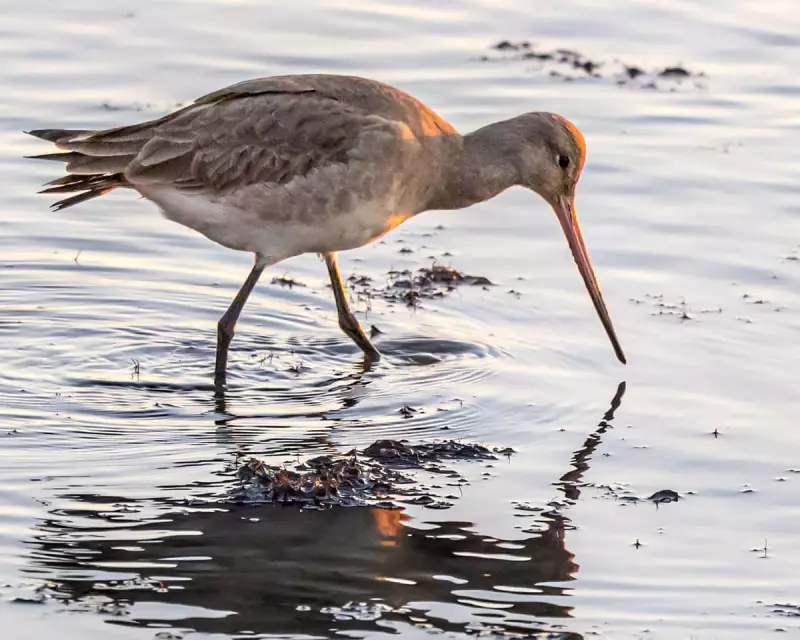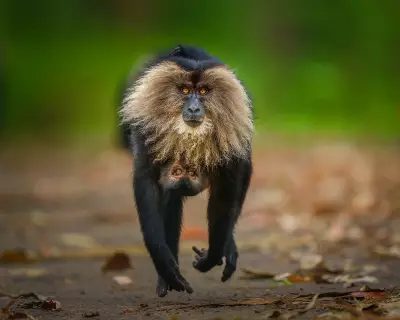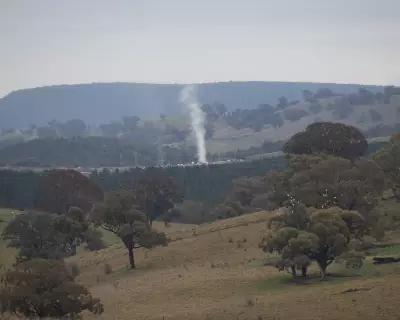
The air in the hide hangs heavy with anticipation, thick with the scent of damp earth and decaying reeds. Outside, the Norfolk wetlands stretch towards a horizon blurred by sea fret, a landscape of whispering sedge and shallow water that feels both ancient and ephemeral.
The Art of Waiting
This is not passive observation, but an active vigil. The wooden bench becomes an altar of patience, the scratched viewing slot a portal to another world. Here, time is measured not in minutes, but in the shifting light and the subtle movements of the marsh.
Then, a disturbance in the water's stillness – not the hoped-for godwits, but a water vole, its fur sleek and dark, carrying stems to some hidden larder. Nature offers consolation prizes while you wait for the main event.
A Symphony of Orange and Black
When they finally arrive, it's with an elegance that steals the breath. Three black-tailed godwits, their long, straight bills probing the soft mud with mechanical precision. In their breeding plumage, they are creatures of fire and soot – burnt-orange breasts fading to barred flanks, with bold black-and-white wing patterns revealed in flight.
Their movements are a study in concentrated purpose. Each deliberate step, each probing thrust into the mud speaks of an ancient knowledge, a migratory memory spanning continents from Icelandic breeding grounds to these wintering wetlands.
More Than Just Birds
To watch these birds is to understand they are more than just feathers and bone. They are living indicators of our environmental conscience. Each successful probe that brings up a worm is a small victory for conservation, a testament to the preservation of these crucial wetland habitats.
The black-tailed godwit represents one of Britain's most pressing conservation stories. These wetlands aren't just pretty landscapes – they are vital lifelines for species pushed to the brink by habitat loss and climate change.
A Quiet Revelation
As the light begins to fade, staining the water with gold, the godwits take flight. Their long legs trail behind them like landing gear, their distinctive 'wicka-wicka' calls echoing across the marsh. They leave behind an emptiness that feels profound.
The true reward of the wait isn't just the sighting itself, but the deeper understanding gained. In that quiet hide, watching these elegant survivors, one becomes acutely aware that we are not separate from this world, but guardians of it. And some things are worth waiting for.





